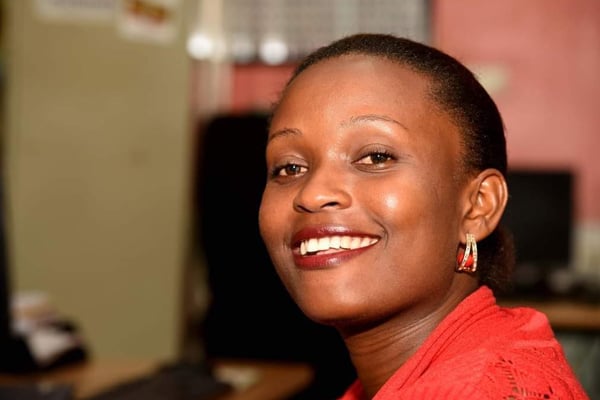Prime
If cops are scared of a mere women’s march we should all be freaked out by the criminals
What you need to know:
- Correct thing to do. Politically, the police are being pennywise and pound-foolish.
- The correct thing is to close off the route of the planned march, provide security to the demonstrators, allow them to air their grievances (which ought to be taken seriously, one must add), take their selfies, then escort them home. No one needs to die in this movie.
I had no intentions of attending the #WomensMarchUG. My decision had nothing to do with the fact that I am a man (my soft skin, delicate hands and, I hear, deeply mysterious eyes notwithstanding), neither was it because I do not identify with the cause; it was based entirely on the fact that after a long week and sometimes an even longer Friday night, I am, to put it delicately, usually not at my fighting best on Saturday mornings.
Like a nuclear reactor starting up, I tend to come-to slowly – an open eye here, a twitching toe there – until, one light at a time, the system reboots, clarity returns, sanity prevails, breakfast is served. Hard to put one’s best foot forward, whatever the righteousness of the cause, when there is a marching band in one’s head.
I now plan to go to the march precisely because the police are trying to ban it. In case you missed the backstory, here goes: Starting last year or maybe even earlier, there was a string of murders of young women in Greater Kampala. Some were also sexually assaulted. The victims being relatively unknown, the murders went under-reported and mostly unresolved until the kidnap and eventual murder of higher-profile Susan Magara.
Many women are living in constant fear of becoming the next victim. The organisers of the march want to express their anger and frustration at the failure to apprehend most of the perpetrators. When they first went to Police HQ to deliver a petition, they were roughed up and a few briefly detained.
The second attempt was more successful and both organisers and senior police officers spoke of a useful exchange of ideas, including, apparently, on how the march would be conducted and so on. On Tuesday, a letter emerged from the office of the Inspector General of Police, saying the march “cannot be allowed to go on as scheduled” because the President and the security chiefs had publicly addressed the country about the crime wave and what is being done about it.
This is a legal and political mistake. First the law: Our Constitution is clear that “fundamental rights and freedoms of the individual are inherent and not granted by the State”. These rights include the freedom of speech and expression as well as the freedom to “assemble and demonstrate together with others peacefully and unarmed and to petition”.
Teddy, Diana and Harriet’s right to assemble and demonstrate against what they see as the State’s failure to guarantee their safety is not in a safe-custody box somewhere in Police HQ to be dusted off, handed to them and then returned for safekeeping. They are born with it. They don’t even have to be right, and there is no law stopping them from demonstrating over a matter that has been addressed publicly.
The Public Order Management Act, which the police routinely abuse, is merely meant to regulate the enjoyment of these rights and ensure that doing so does not infringe on the rights of others. The Constitution also notes – and Justice Mulenga reaffirmed in a seminal Supreme Court ruling – that any limitations imposed on the enjoyment of these rights must be “acceptable and demonstrably justifiable in a free and democratic society”.
Politically, the police are being pennywise and pound-foolish. The correct thing is to close off the route of the planned march, provide security to the demonstrators, allow them to air their grievances (which ought to be taken seriously, one must add), take their selfies, then escort them home. No one needs to die in this movie.
Yet we could have a completely different ending should the police choose to be trigger-happy: Think images beamed around the world of bloodied women being violently arrested, others running away from rising plumes of tear-gas. Citizens have had it with swimming through sick lullabies of how secure they are; it is time for law enforcers to stop choking on their alibis.
So I will be at the march. With my daughter. We will hold hands and walk, unarmed and peacefully, along with others. I want her to love her country and learn, as a young African woman, to stand up and speak up. When she grows up she, and others like her, will be the saviours of the broken, the beaten, and the damned. Welcome to the Black Parade – and I hope the police are smart enough not to stain it blood-red.
Mr Kalinaki is a journalist and a poor man’s freedom fighter. [email protected]
Twitter: @Kalinaki.




